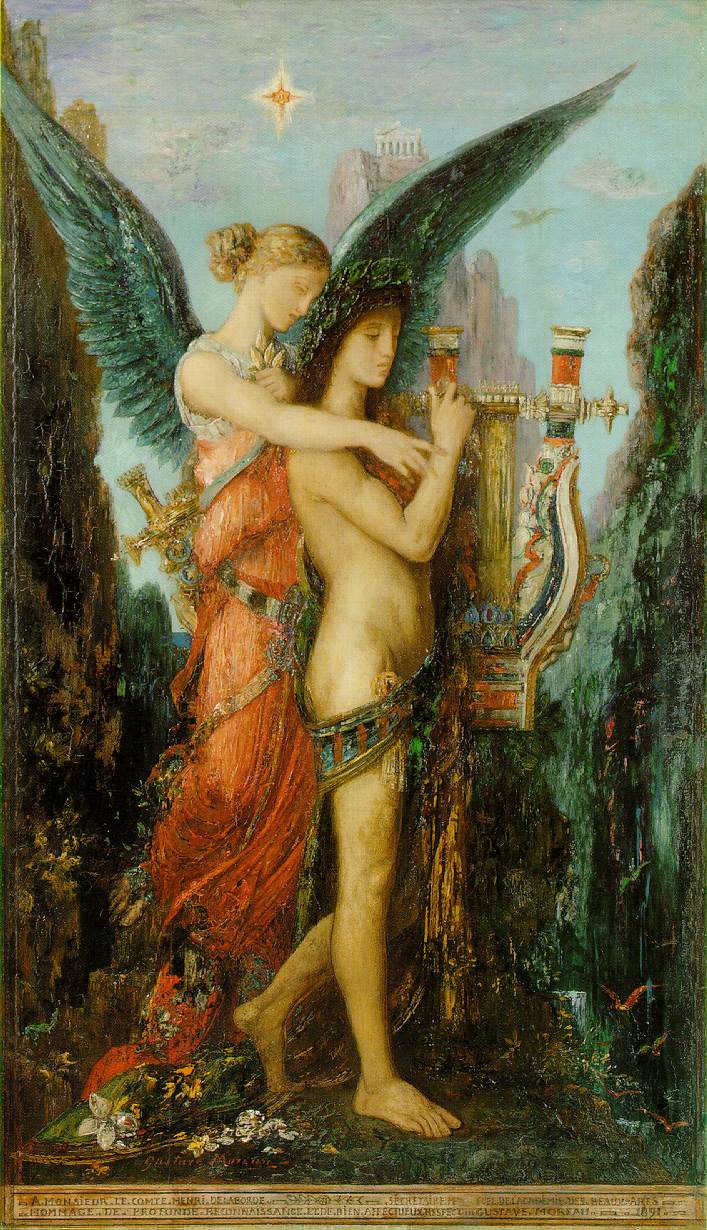Works
Works and Days
HesiodFamous Hesiod Quotes
“But he who neither thinks for himself nor learns from others, is a failure as a man.”
Source: Works and Days and Theogony
Hesiod Quotes about men
“Neighbour vies with his neighbour as he hurries after wealth. This Strife is wholesome for men.”
Source: Works and Days (c. 700 BC), line 23.
“For in misery men grow old quickly.”
Source: Works and Days (c. 700 BC), line 93.
Hesiod Quotes about God
“Wealth should not be seized: god-given wealth is much better.”
Source: Works and Days (c. 700 BC), line 320.
“There the sons of obscure Night hold their habitation, Sleep and Death, dread gods.”
Source: The Theogony (c. 700 BC), line 758.
“The gods have placed sweat as the price of all things.”
Perhaps a mistranslation of line 289 of Works and Days, actually:
: But in front of excellence the immortal gods have put sweat
Misattributed
Source: The Theogony (c. 700 BC), line 120.
Hesiod: Trending quotes
“Hunger is altogether a meet comrade for the sluggard.”
Source: Works and Days (c. 700 BC), line 302.
“It will not always be summer, build barns.”
Source: Works and Days (c. 700 BC), line 503.
Hesiod Quotes
“A bad neighbor is a misfortune, as much as a good one is a great blessing.”
Source: Works and Days (c. 700 BC), line 346.
Catalogues of Women and Eoiae 3 (Loeb, H.G. Evelyn-White).
Catalogue of Women or Eoiae
Variant translation: At the beginning of the cask and at the end take thy fill, but be saving in the middle; for at the bottom saving comes too late.
Source: Works and Days (c. 700 BC), line 368 (translated by Hugh G. Evelyn-White).
“The best treasure a man can have is a sparing tongue.”
Source: Works and Days (c. 700 BC), line 719.
“They died, as if o'ercome by sleep.”
Source: Works and Days (c. 700 BC), line 116.
“The man who trusts womankind trusts deceivers.”
Source: Works and Days (c. 700 BC), line 375.
“Often an entire city has suffered because of an evil man.”
Variant translation: Oft hath even a whole city reaped the evil fruit of a bad man.
Source: Works and Days (c. 700 BC), line 240.
Source: Works and Days (c. 700 BC), line 365.
Source: Works and Days (c. 700 BC), line 293.
“The generation of the man who swears truly is better thenceforward.”
Source: Works and Days (c. 700 BC), line 285.
Source: Works and Days (c. 700 BC), line 210.
“Only when he has suffered does the fool learn.”
Source: Works and Days (c. 700 BC), line 218.
Variant translation: If thou shouldst lay up even a little upon a little, and shouldst do this often, soon would even this become great.
Source: Works and Days (c. 700 BC), line 361.
“From whose eyelids also as they gazed dropped love.”
Source: The Theogony (c. 700 BC), line 910.
Source: Works and Days (c. 700 BC), line 304.
“Observe due measure, for right timing is in all things the most important factor.”
Source: Works and Days (c. 700 BC), line 694.
“It is not possible to deceive or go beyond the will of Zeus.”
Source: The Theogony (c. 700 BC), line 613.
“He harms himself who does harm to another, and the evil plan is most harmful to the planner.”
οἷ γ᾽ αὐτῷ κακὰ τεύχει ἀνὴρ ἄλλῳ κακὰ τεύχων
ἡ δὲ κακὴ βουλὴ τῷ βουλεύσαντι κακίστη.
The man who does evil to another does evil to himself, and the evil counsel is most evil for him who counsels it.
He for himself weaves woe who weaves for others woe,
and evil counsel recoils on the counsellor. https://archive.org/stream/b24865898#page/432/mode/2up
Source: Works and Days (c. 700 BC), lines 265-266
“Sometimes a day is a step mother, sometimes a mother.”
Source: Works and Days (c. 700 BC), line 825.
“Work is no disgrace: it is idleness which is a disgrace.”
Source: Works and Days (c. 700 BC), line 311.
“The dawn speeds a man on his journey, and speeds him too in his work.”
Source: Works and Days (c. 700 BC), line 579.
Source: Works and Days (c. 700 BC), line 260.
Source: Works and Days (c. 700 BC), line 761.
Source: Works and Days (c. 700 BC), line 695.
“Invite the man that loves thee to a feast, but let alone thine enemy.”
Source: Works and Days (c. 700 BC), line 342.
This quote has been attributed to Hesiod on the internet, and even published with citation as a dubious attribution, but there are no known occurrences of it in his writings.
Misattributed
Source: Works and Days (c. 700 BC), line 225.
“For a man wins nothing better than a good wife, and, again, nothing worse than a bad one.”
Source: Works and Days (c. 700 BC), line 702.
“For trust and mistrust, alike ruin men.”
Source: Works and Days (c. 700 BC), line 372.
“Fools, they do not even know how much more is the half than the whole.”
Source: Works and Days (c. 700 BC), line 40; often translated as "The half is greater than the whole."
“Diligence increaseth the fruit of toil. A dilatory man wrestles with losses.”
Source: Works and Days (c. 700 BC), line 412.
“Do not seek evil gains; evil gains are the equivalent of disaster.”
Gain not base gains; base gains are the same as losses.
Source: Works and Days (c. 700 BC), line 352; compare: "the gains of the wicked bring trouble", Book of Proverbs 15:6.
We know to tell many fictions like to truths, and we know, when we will, to speak what is true.
We know how to tell many lies that pass for truth, and we know, when we wish, to tell the truth itself.
Source: The Theogony (c. 700 BC), lines 27–28. Variant translations:
“On the tongue of such an one they shed a honeyed dew, and from his lips drop gentle words.”
Source: The Theogony (c. 700 BC), line 82.
